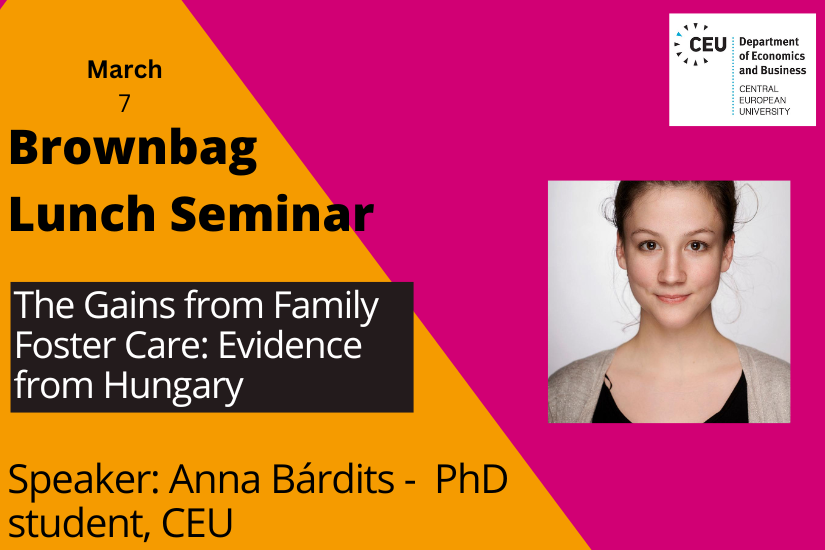
Abstract:
In this paper, we analyze how the outcomes of children in state care are affected by the type of home - family foster care or residential care - they are raised in as teenagers. While it is established that living residential care is detrimental for babies, the effect of living in different types of care as an older child is unknown. We use Hungarian individual level administrative panel data and follow the children from 6th grade until age 19. We show that the outcomes of children growing up in family foster care are considerably better even after controlling for a rich set of variables, including standardized testscores, indicators of non-cognitive skills, and psychological problems observed in 6th grade. By age 19, young adults who grew up in family foster care are 4 pp less likely to use antidepressants, and 4 pp less likely to use tranquilizers than those who grew up in residential care. They are 8 pp more likely to finish secondary education, and 12 pp less likely to spend more than 6 months as NEETs (without either working or studying) at age 19. For girls, teenage pregnancy is 17 pp less likely.